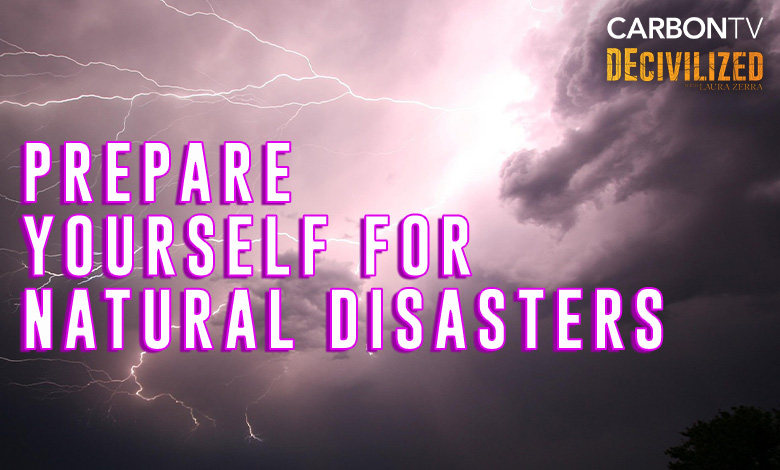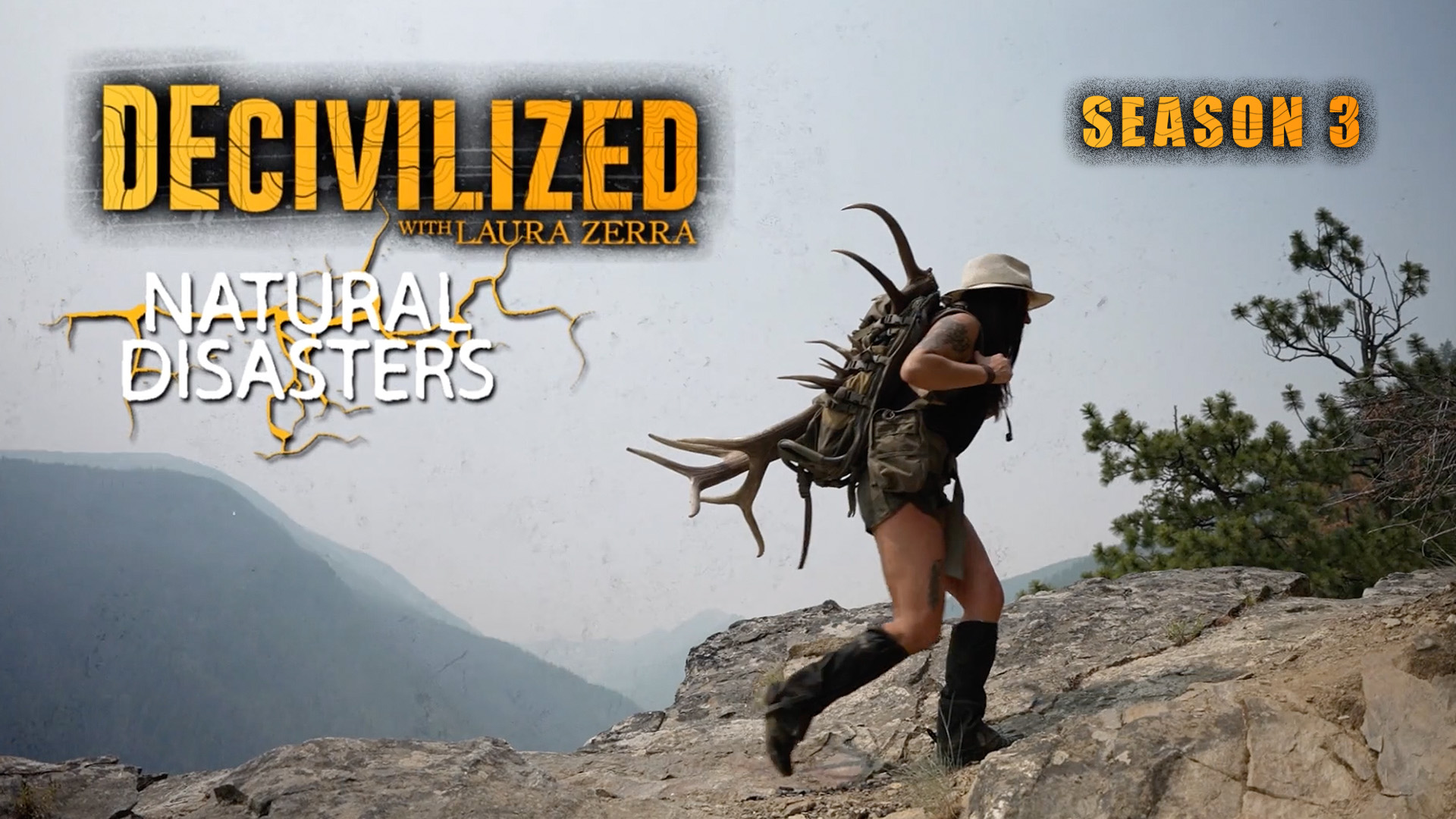Prepare Yourself For Natural Disasters
Laura Zerra’s DECIVILIZED talks preparation, relief and aid

World renown primitive survivalist and life-long storm enthusiast Laura Zerra has survived more days in the wild than almost any other female on Earth. Her experiences inspired her to travel the world in search of natural disasters and document her knowledge on how to prepare yourself for natural disasters, disaster relief, aid, and preparation in the newest season of her series DECIVLIZED on CarbonTV.
Preparing for natural disasters is essential to ensure the safety and well-being of yourself and your loved ones. Here are some general guidelines on how to prepare yourself for natural disasters:
Stay informed:
Keep track of weather updates, news, and warnings through reliable sources such as local authorities, weather services, and emergency management agencies. Sign up for alerts and notifications to stay informed about any potential hazards in your area.
Create an emergency plan:
Develop a comprehensive emergency plan for your household. Identify potential risks and discuss how to respond to each scenario. Determine evacuation routes, meeting points, and communication methods. Assign responsibilities to each family member, including caring for pets and elderly or disabled individuals.
Build an emergency kit:
Assemble an emergency kit that includes essential supplies to sustain you and your family for at least 72 hours. Some items to include are:
-
- Water: One gallon of water per person per day for drinking and sanitation purposes.
- Non-perishable food: Stock up on canned food, energy bars, and other non-perishable items that require no refrigeration or cooking.
- First aid kit: Include bandages, medications, antiseptics, gloves, and any necessary prescription medications.
- Flashlights, batteries, and a battery-powered radio: These will provide light and keep you updated on emergency broadcasts.
- Extra clothing and blankets: Have warm clothing, rain gear, and blankets in case of extreme weather conditions.
- Personal hygiene items: Include items like toiletries, toilet paper, wet wipes, and hand sanitizer.
- Cash: Keep some cash on hand as ATMs may be unavailable during emergencies.
- Important documents: Safeguard important documents like identification, insurance policies, medical records, and contact information in a waterproof container or digitally.
Secure your home:
Make sure your home is structurally sound and take steps to minimize potential damage. Install storm shutters or reinforce windows and doors. Secure heavy furniture and appliances to prevent them from toppling during earthquakes. Trim trees and remove any loose branches that could damage your property during high winds. Maintain your roof and clear gutters regularly.
Develop a communication plan:
Establish a communication plan with your family and friends. Choose a contact person outside the affected area who can act as a central point of contact for everyone. Make sure everyone knows how to reach that person and establish backup methods of communication such as text messaging or social media.
Know evacuation routes:
Familiarize yourself with evacuation routes in your area and follow any evacuation orders issued by local authorities. Plan ahead for transportation and accommodation options if you need to leave your home. If you have pets, find out about pet-friendly shelters or make arrangements with friends or family who can accommodate them.
Stay connected and be aware:
During a disaster, stay tuned to local news and official sources for updates and instructions. Follow the guidance provided by emergency management agencies and authorities. Be aware of the signs and warnings related to specific types of disasters, such as earthquakes, hurricanes, floods, or wildfires.
Remember, to prepare yourself or natural disasters, preparedness is key. By taking proactive measures and being well-prepared, you can significantly reduce the impact of natural disasters on your life and increase your chances of staying safe. In the meantime, join Laura Zerra for this season of DECIVILZED on CarbonTV as she takes viewers with her to the eye of the storm.
You may also be interested in CarbonTV’s article: Best Types of Ammunition for Hunting, Competition Shooting, and Self Defense


